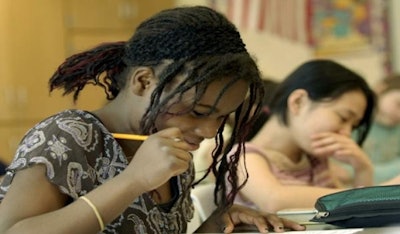 State policymaker attention to teacher quality is highly responsive to White students, not Black students.
State policymaker attention to teacher quality is highly responsive to White students, not Black students.In a newly-published political science journal article, a Baylor University professor and a Notre Dame graduate student report that state policymaker attention to teacher quality tends to be highly responsive to low high school graduation rates among White students, but not so in reaction to low graduation rates among African-American students.
In addition, the study seeks to uncover “a possible mechanism behind this unequal responsiveness by examining the factors that motivate White public opinion about education reform and [finds] racial influences there as well.”
“Taken together, we uncover evidence that the persisting achievement gap between White and African American students has distinctively political foundations,” assert co-authors Dr. Patrick Flavin, a Baylor University assistant political science professor, and Michael Hartney, a University of Notre Dame political science Ph.D. candidate, in the article, “The Political Foundations of the Black-White Education Achievement Gap.”
The researchers claim that, since the 1954 Brown v. Board of Education U.S. Supreme Court decision, education inequality persists even under U.S. education reform.
“Instead of promoting equality of opportunity, America’s system of K-12 education—which relies heavily on state and local control—may worsen political inequalities,” according to the study.
The study, which is available online, is expected to appear in print this fall in the American Politics Research journal.
Flavin explained that, since Brown v. Board, U.S. education reform under the No Child Left Behind legislation, which emphasizes accountability and high-stakes testing, has made it possible to better measure K-12 educational outcomes by race and ethnicity. No Child Left Behind took effect in 2002.
“The [achievement] gap narrowed from the time of Brown v. Board of Education onward until about the early 1990s when it stalled. That is, the gap’s still there. It was getting smaller but now it’s either the same or getting larger again,” he said.
Given the persistence of an educational achievement gap between Blacks and Whites, Flavin said the study was conducted to determine whether politics can help explain why the gap remains. “There’s this achievement gap and why is that? Can politics explain it? Is unequal responsiveness to different groups one potential explanation?” he said.
In the research, racial disparities in student outcomes were demonstrated using National Assessment of Education Progress (NAEP) test score data as well as high school graduation rates. The researchers measured 12 state-level reform policies tracked by the National Council on Teacher Quality to analyze state policymaking. Those policies include such measures as paying teachers more for teaching in high-poverty schools and tying teacher pay to student achievement.
To assess White and African-American education opinions, the researchers used a number of national public opinion polls and found that Whites “only seem to be alarmed when White students’ performance drops,” Flavin said.
The study found that Whites are less likely to think an education gap exists or to see it as a priority when compared to Blacks. Whites are also less likely to think that the government has a responsibility to close a gap, according to the researchers. The study concludes by mentioning that the most recent and comprehensive efforts to address educational inequality have come not from state policymakers but rather from the federal government.
Flavin, who has been at Baylor for three years, said the study developed from his work that focuses on political inequality and that of Harney’s interest in education. The collaboration between the researchers stems from their association as Notre Dame political science graduate students, Flavin added.





















